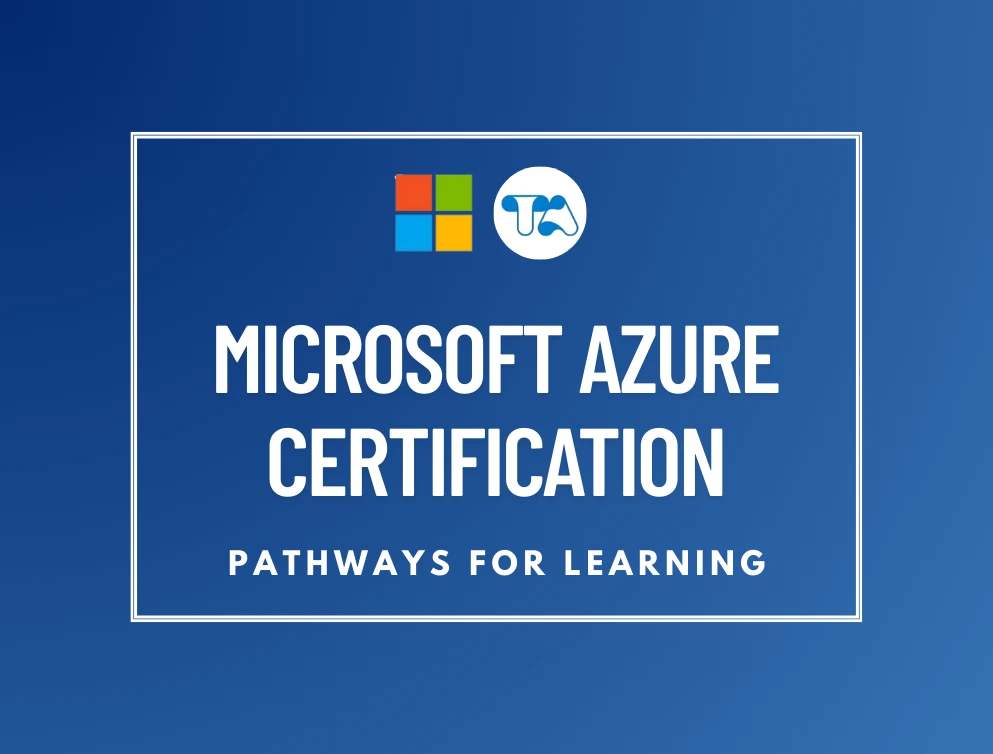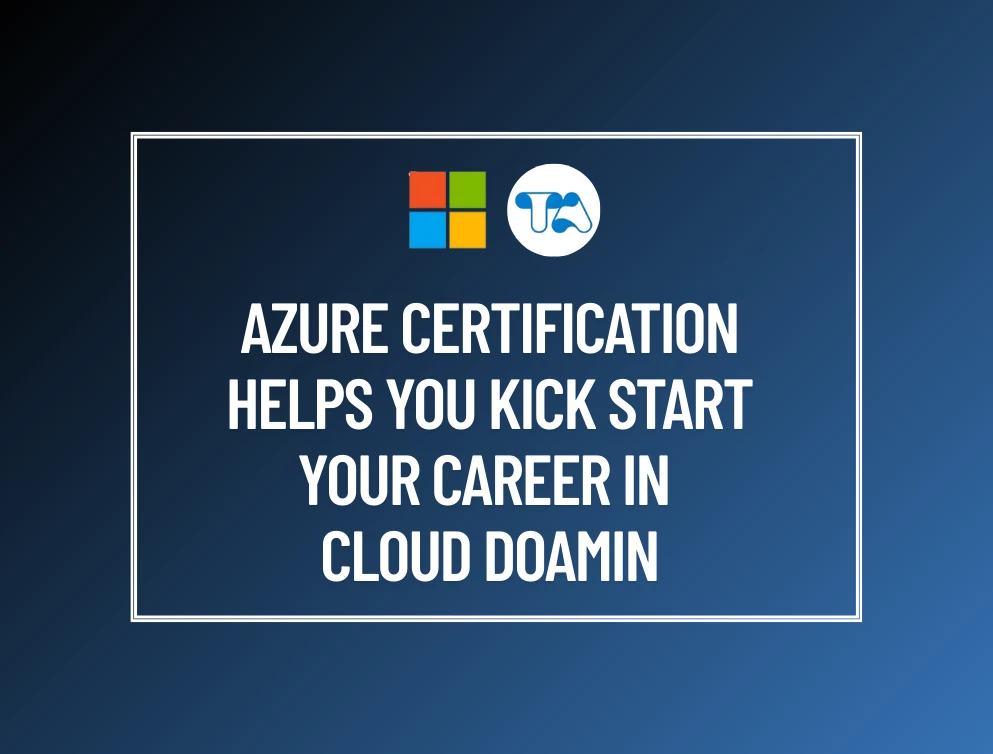Where can I find AWS cloud computing training with certification?
Introduction
Looking to break into the booming world of cloud technology? The cloud is calling—and AWS cloud computing training is your launchpad. As demand surges for certified professionals, earning an AWS certification opens doors to high-impact roles and global opportunities. Whether you're targeting the AWS Certified Solutions Architect credential or hunting for the best AWS certification course, discover where your transformation begins today.
What Is AWS Cloud Computing and Why It Matters Today AWS cloud computing refers to the suite of cloud services provided by Amazon, including computing power, storage, and databases on demand. These services allow businesses to innovate faster, scale globally, and optimize resources. The proliferation of remote work, digital transformation, and AI-based applications has made AWS proficiency an invaluable asset in the modern workforce.
Understanding the Importance of AWS Certifications AWS certifications validate a professional’s expertise in cloud architecture, operations, and development. They are globally recognized credentials that demonstrate hands-on experience and deep knowledge of AWS services.
How AWS Certifications Boost Your Career Opportunities Holding an AWS certification can significantly enhance career prospects. Certified professionals often enjoy increased visibility with recruiters, higher salary brackets, and access to more strategic job roles. In an environment where cloud skills are in high demand, AWS certification sets candidates apart.
Why Employers Value AWS-Certified Professionals Organizations value AWS-certified professionals because they bring credibility, technical fluency, and a problem-solving mindset to complex cloud projects. Certified employees reduce risk, accelerate deployment, and align infrastructure with best practices, making them indispensable assets.
Types of AWS Cloud Certifications:
Foundational Level: AWS Certified Cloud Practitioner Ideal for newcomers, this certification covers AWS basics, cloud concepts, pricing models, and support plans. It provides a strong foundation for further specialization.
Associate Level: Solutions Architect, Developer, SysOps Administrator These intermediate certifications delve deeper into specific roles. Solutions Architects design distributed systems, Developers build and maintain applications on AWS, and SysOps Administrators handle deployment and operations.
Professional Level: Solutions Architect, DevOps Engineer Reserved for seasoned professionals, these certifications validate advanced expertise in designing complex systems and automating infrastructure. They require substantial practical experience.
Specialty Certifications: Security, Machine Learning, Data Analytics, and More Specialty tracks focus on niche areas. Whether it’s securing cloud infrastructure, deploying AI models, or managing big data pipelines, these certifications showcase highly specialized skills.
Who Should Pursue AWS Cloud Computing Training:
Beginners Exploring a Cloud Career Path Aspiring tech professionals with little or no experience can start with foundational training. It introduces them to cloud fundamentals and prepares them for entry-level roles.
IT Professionals Looking to Upskill IT specialists in networking, system administration, or software development can leverage AWS training to pivot into high-demand cloud roles.
Enterprises Upskilling Internal Teams Organizations seeking digital transformation often sponsor AWS training for their teams to enhance efficiency, innovation, and in-house capabilities.
Key Features to Look for in AWS Training Programs:
Hands-On Labs and Real-World Scenarios Training must include immersive labs that simulate real environments. These practical exercises reinforce theoretical knowledge and build confidence.
Instructor-Led vs Self-Paced Training Instructor-led sessions offer direct mentorship and structured learning, while self-paced courses provide flexibility for working professionals.
Access to Practice Exams and Mock Tests Mock exams mirror the actual certification format, helping learners gauge readiness and manage exam-day anxiety.
Certification Exam Preparation Support Look for programs that offer dedicated prep sessions, exam tips, and personalized feedback.
Top Online Platforms for AWS Cloud Computing Training:
AWS Skill Builder and Official Training Partners AWS’s own platform offers in-depth courses curated by experts. Authorized training partners often bundle labs and exam vouchers.
Coursera, Udemy, and edX – Pros and Cons These MOOC platforms provide affordable, accessible training with varying levels of depth. Quality can differ based on the instructor.
LinkedIn Learning, Pluralsight, and A Cloud Guru Comparison These platforms cater to professionals with career-oriented content. A Cloud Guru, in particular, specializes in cloud training with a gamified approach.
Offline and Hybrid Learning Options:
Classroom-Based AWS Training Centers In-person training centers offer direct interaction, peer learning, and focused attention—ideal for those who thrive in structured settings.
University and College Extension Programs Many academic institutions have started offering AWS certification programs as part of their continuing education portfolios.
Hybrid Bootcamps Blending Online and In-Person Learning Bootcamps combine flexibility with live mentorship. These intensive programs are great for fast-tracking your certification journey.
How to Choose the Right AWS Certification Path for You:
Aligning Your Career Goals with the Right AWS Track Consider your interests—architecture, development, data, or operations—and select certifications that align with long-term goals.
Understanding the Prerequisites for Each Level Higher-level certifications demand prior experience and knowledge. Always start at the appropriate level to build a strong knowledge base.
Mapping a Long-Term Certification Strategy Create a roadmap from foundational to specialty certifications, integrating practical projects and continuous learning.
Comparing Free vs Paid AWS Training Resources:
What You Get with Free Training Tools Free resources like AWS Skill Builder or YouTube tutorials offer a great starting point but may lack depth and structure.
When It’s Worth Investing in Premium Courses Paid programs provide comprehensive content, mentorship, and exam readiness—an investment that pays off in job outcomes.
Job-Ready Skills You Can Expect from AWS Certification Training:
Deploying Scalable Infrastructure on AWS Learn to design fault-tolerant, highly available systems using services like EC2, S3, and Elastic Load Balancing.
Implementing Cloud Security Best Practices Master Identity and Access Management (IAM), encryption techniques, and compliance protocols.
Monitoring and Optimizing Cloud Resources Use tools like CloudWatch and Cost Explorer to manage performance and optimize budgets.
Success Stories from AWS-Certified Professionals:
Real-Life Career Transformations After Certification Many professionals have transitioned from traditional IT to cloud roles, doubling their salaries and taking on strategic responsibilities.
Testimonials from Learners Who Landed Cloud Roles First-hand stories reveal how AWS training helped individuals land roles at top tech firms, start their own consultancies, or pivot careers.
Common Mistakes to Avoid When Choosing AWS Training:
Overlooking Course Reviews and Instructor Experience Always vet courses through ratings and instructor credentials to avoid subpar experiences.
Ignoring Practical Labs and Project Work Theory without practice is futile. Ensure the course includes hands-on components.
Skipping Exam Readiness Assessments Mock tests are crucial for identifying weak spots and building exam confidence.
Exam Registration and Certification Process:
Steps to Book Your AWS Certification Exam Register through AWS Training and Certification or Pearson VUE. Choose a date, location (or online), and pay the exam fee.
Tips for Passing the Exam on Your First Attempt Review whitepapers, take practice tests, and focus on services most relevant to your chosen certification.
Post-Certification Benefits and Career Paths:
Job Roles You Can Apply for After Certification Certified professionals qualify for roles like Cloud Architect, DevOps Engineer, Solutions Consultant, and more.
Average Salaries for AWS-Certified Professionals Salaries vary by region and role but commonly range from $90,000 to $160,000 annually for certified professionals.
How to Maintain and Renew Your Certification Certifications are valid for three years. Stay updated and take the recertification exam to maintain your credential.
Industry Demand for AWS Skills in 2025 and Beyond:
Current Hiring Trends Across Industries Sectors like healthcare, finance, and e-commerce are rapidly hiring AWS-skilled professionals to modernize infrastructure.
Future-Proofing Your Career with Cloud Expertise As businesses embrace digital ecosystems, cloud proficiency ensures sustained relevance and career resilience.
How to Stay Updated After Getting Certified:
Continuing Education with New AWS Features AWS regularly introduces new services. Stay informed through webinars, whitepapers, and AWS blogs.
Joining AWS Communities and Forums Engage with peers, share knowledge, and explore job leads through forums like AWS re:Post, Reddit, or LinkedIn groups.
Conclusion:
Pursuing AWS cloud computing training with certification isn't just smart—it's your gateway to future-proof tech careers 🚀
Start your journey with expert-led courses at Tecknow Academy today!
👉Enroll now and level up your cloud game








0 Comments